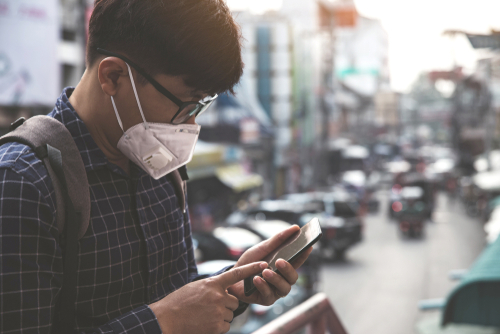
President Donald Trump signed into law an $8.3 billion emergency funding package on Friday aimed at combatting the spread of the coronavirus that has led to more than 3,000 deaths globally.
The legislation, H.R. 6074, the Coronavirus Preparedness and Response Supplemental Appropriations Act, 2020, provides additional fiscal year 2020 emergency supplemental funding for fighting the spread of the coronavirus (COVID-19) at the local, state, national, and international levels.
The U.S. Senate on Thursday advanced the coronavirus funding package following U.S. House approval on Wednesday. Notably, it will provide more than triple the amount of funds the White House proposed to address the outbreak last week. Both Republicans and Democrats had widely criticized that amount as insufficient.
“I am pleased Congress has swiftly passed this emergency supplemental to combat the dangerous coronavirus,” Senate Appropriations Committee Chairman Richard Shelby (R-AL) said on Thursday. “It includes what our experts say they need. It attacks the crisis at the local, state, federal, and international levels. And it brings to bear the full resources of the federal government.”
The legislative package moved to provide funding for prevention and treatment of the novel coronavirus, including funding for vaccine development and for support of state and local governments. The package provides for funding through the Department of Health and Human Services totaling $6.497 billion and the State Department at $1.25 billion. It also provides $61 million for the Food and Drug Administration and another $20 million for the Small Business Administration. Approximately 85 percent of those funds must be spent domestically, including an additional $500 million in mandatory spending for telehealth services through Medicare.
“Americans urgently need a coordinated, fully-funded, whole-of-government response to keep us safe from the widening coronavirus epidemic,” House Speaker Nancy Pelosi said when the House took up the legislation.
Breaking the funding down further, more than $3 billion is slated for research and development of a vaccine, diagnostics and therapeutics to treat the coronavirus. The legislation states that such vaccines, therapeutics or diagnostics developed using taxpayer funds to counter the coronavirus be affordable in the commercial market.
The Centers for Disease Control and Prevention stands to gain $2.2 billion to support federal, state and local public health agencies to prevent, prepare for and respond to the coronavirus, including surveillance efforts and laboratory testing to detect positive cases, among other public health activities. Beyond this, $300 million will be dispatched to the Infectious Diseases Rapid Response Reserve Fund, as a means of supporting outbreak response.
Other highlights include nearly $1 billion in funding aimed at procuring pharmaceuticals and medical supplies and at Community Health Centers and the direction of $435 million to support health systems overseas in their prevention and response efforts, along with $300 million to respond to humanitarian needs.




